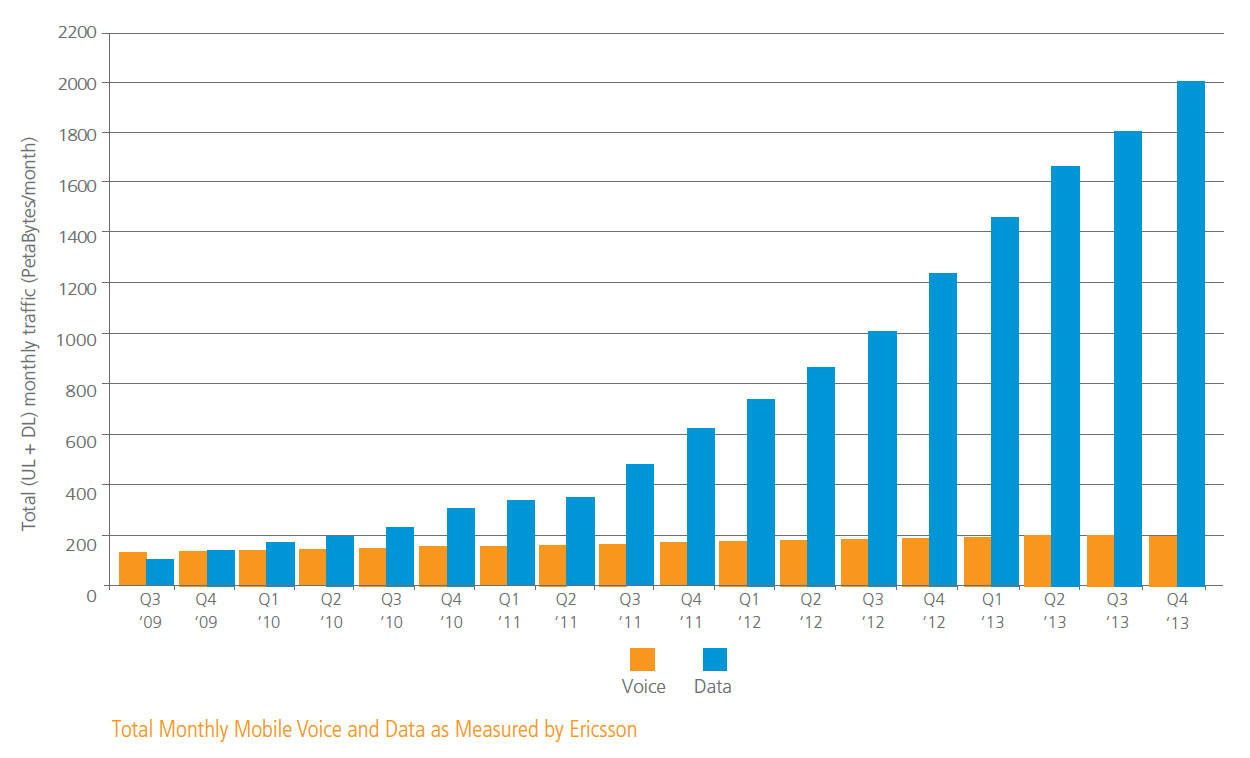According to this this report recently released by Akamai Technologies, a cloud-based content delivery network platform that is responsible for about 30% of the world’s web traffic, it appears so.
The 44-page report covers the global state of the internet in the areas of security, broadband penetration and mobile connectivity for Q4, 2013.
Research on mobile connectivity was based off data sourced from both Akamai and Ericsson. Ericsson has a presence in over 180 countries , with a customer base representing over 1000 networks around the world.
Akamai says they observed a 15% rise in global mobile traffic (mobile 2G, 3G and 4G/LTE) between Q3 and Q4 of 2013. This amounts to about 70% increase between Q4 2012 and Q4 2013 – just one year. However, while mobile data usage continues to rise globally, voice traffic on the other hand has remained flat, or did it?
A closer inspection of the graph below reveals that voice traffic may have actually reduced – rather than increase as usual – for the first time ever, albeit marginally.
These results come at no surprise. At this rate, it will probably not be out of place to expect a further reduction in Q1 2014. Especially with the plethora of alternative Voice over internet Protocol (VOIP) services available to subscribers. Between BBM Voice, Viber, Skype, and Hangouts, users are spoilt for choice. And word has it that WhatsApp, with their half a billion subscriber base, will soon join the VOIP party. Little wonder, there were reports not too long ago that Nigerian telcos were looking to ban VOIP services.
It is worthy of note that measurements of data traffic around the world will vary largely, due regional and operator differences.
Photo Credit: World Bank Photo Collection via Compfight cc




















